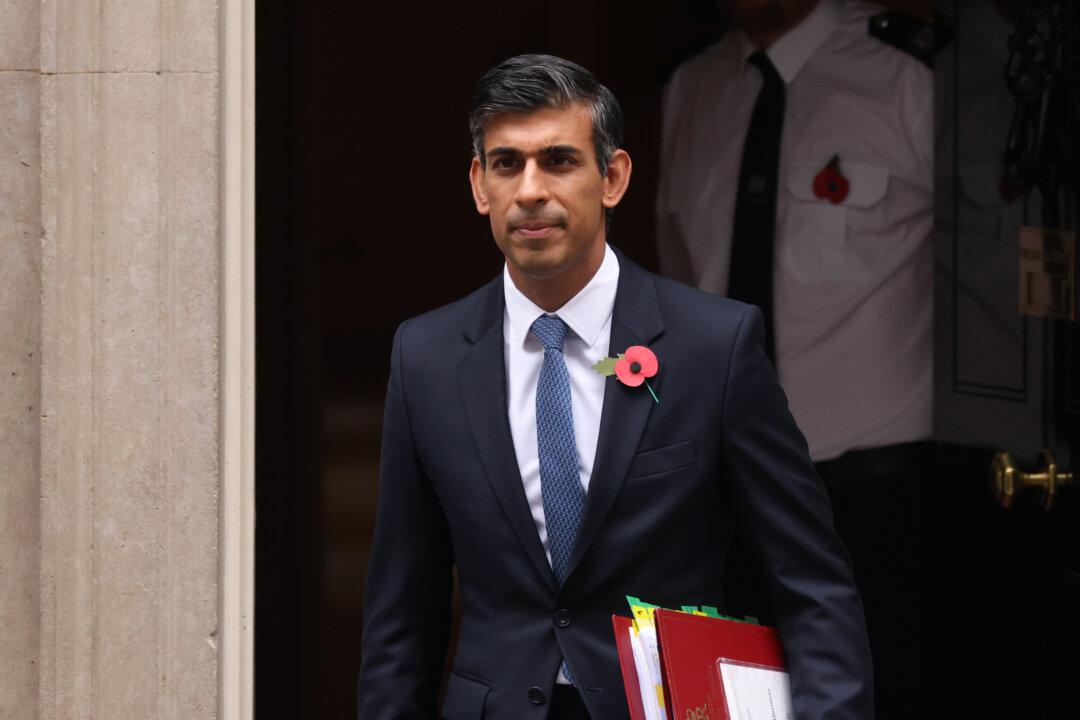British Prime Minister Rishi Sunak has told journalists on his way to the G-20 summit in Indonesia that China poses the “biggest state-based threat to our economic security.”
China’s leader and head of the Chinese Communist Party (CCP), Xi Jinping, will be at the G-20 summit in Bali and Sunak said, “Hopefully I will have a chance to talk to him.”





